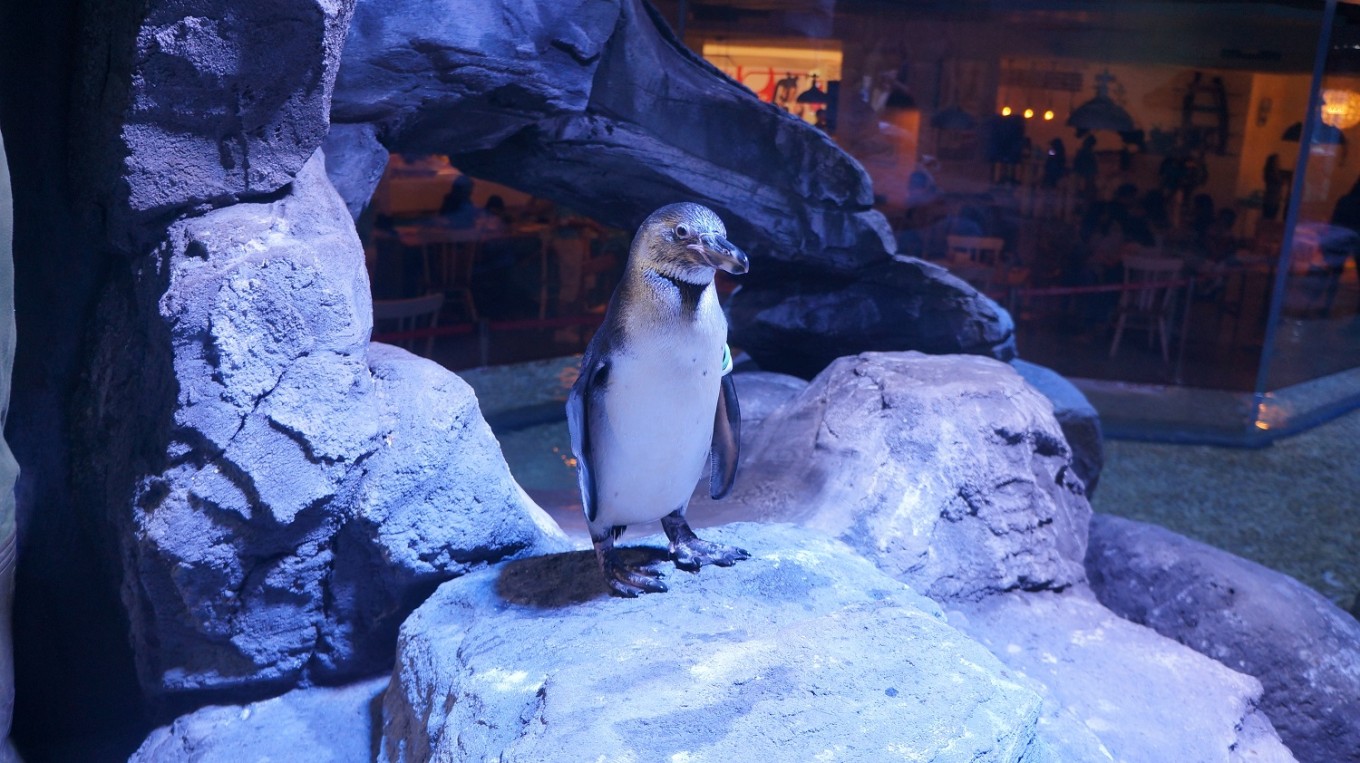Popular Reads
Top Results
Can't find what you're looking for?
View all search resultsPopular Reads
Top Results
Can't find what you're looking for?
View all search resultsRestaurant presents live penguins as part of conservation program
Change text size
Gift Premium Articles
to Anyone
F
irst opened on Dec. 28 last year, Pingoo restaurant in Neo Soho shopping mall, West Jakarta, caught the public’s attention due to the appearance of live penguins inside the eatery's aquarium display.
Jakarta Aquarium public relations Leo Loemanto admitted on Wednesday that the company had received several protests. “[The protesters] thought that the penguins were being used to attract visitors to the shopping mall or the restaurant,” he told The Jakarta Post during a media gathering.
In regards to the issue, Leo clarified that the restaurant was a part of Jakarta Aquarium, which was a conservation agency and a sister company of Taman Safari Indonesia in Cisarua, Bogor, West Java.
Leo explained that the restaurant was one of the must-have facilities in an animal park, which led them to open Pingoo restaurant. The addition of penguins was decided as it was suitable with the restaurant’s name.
(Read also: Ancol under pressure from social media for cruel treatment of dolphin)
The idea to open the Jakarta Aquarium was realized from the government’s indirect challenge for the company to create an “edutainment” area inside a shopping mall. “As we can see, several countries in Asia, such as Dubai, Malaysia and Singapore, have opened this kind of facility,” he said.
When it comes to the animal welfare, Leo said that although the Humboldt penguins originated from Chile and Peru, they were breeding the penguins at Taman Safari Indonesia. “We did not take the penguins from its natural habitat," he stated.
The environment inside Pingoo restaurant was designed to be similar with Humboldt penguin’s natural habitat, which includes a wave pool and rocky coastal area.
Taman Safari Indonesia group's head of life sciences-slash-consultant Biswaji Guha added that the penguin’s behavior in the restaurant proved that they had adapted with the environment. “They can swim or rest whenever they want. Their feathers also look fresh and healthy,” explained Biswaji.
Jakarta Aquarium is slated to open in February. The aquarium will host close to 300 species, including iguanas and coconut crabs. Most of the species will come from Indonesia’s oceans. (asw)











